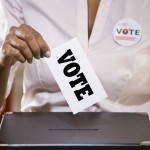 Democracy is widely believed to be in crisis, and whilst misinformation and duplicitous behavior from politicians and the media have contributed much of the malaise we find ourselves in, it’s also hard to dispute the involvement of nefarious actors in our elections.
Democracy is widely believed to be in crisis, and whilst misinformation and duplicitous behavior from politicians and the media have contributed much of the malaise we find ourselves in, it’s also hard to dispute the involvement of nefarious actors in our elections.
The ability to protect the electoral process from outside influence is therefore crucial to the health of our democracy, and new research from MIT adds some thoughts on how this can be achieved.
The researchers explain that data on electoral interference is scarce, and as such there is disagreement about the true extent of the problem. To rectify that, the authors advocate a four step research agenda to better understand how, when and to what extent interference affects our elections.
“If we fund and pursue this agenda,” they explain, “we will learn how to protect democracy. Without it, democracies will remain vulnerable to foreign and domestic attacks worldwide.”
This begins by cataloguing our exposure to manipulative media, before combining this with data on voting behavior. It then goes on to assess the impact of any manipulative messaging on voting behavior and aggregating this to understand the consequences on election outcomes.
“You cannot manage what you do not measure,” the authors explain. “We need rigorous analysis of effects of these foreign campaigns on voting behavior.”
Electoral integrity
The authors highlight the clear tradeoff in terms of maintaining the integrity of elections whilst at the same times ensuring the privacy of voters. They suggest that well-intentioned privacy regulations can impede our ability to assess any potential interference in elections by making the data collection required to audit elections harder to achieve.
“There are privacy-preserving ways to protect our data and our elections at the same time,” they say. “To take advantage of them, Congress must consult experts in designing legislation that acknowledges these multiple goals and avoids their tradeoffs.”
Democracy appears to be having a tougher time than it has in a generation, and with a growing number of means to interfere in elections, it’s vital that we gain a better understanding of the ways manipulation can occur.
“The sooner we begin a public discussion of the tradeoffs between privacy, free speech, and democracy that arise from the pursuit of this science, the sooner we can realize a path forward,” the authors conclude.